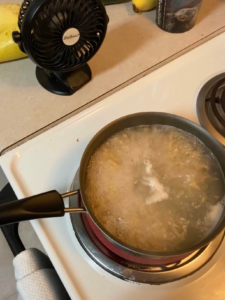
Should You Add Oil to Pasta Water?
When cooking pasta, the question often arises: Should you add oil to the water? This debate has been ongoing among home cooks and chefs, with differing opinions on whether oil makes a difference. Here’s a closer look at the pros and cons of adding oil to pasta water.
The Traditional Perspective
Traditionally, adding oil to pasta water was believed to prevent the pasta from sticking together. The idea was that a thin layer of oil would coat the pasta, reducing the likelihood of clumping. This method was particularly popular before the benefits of stirring and using ample water were fully recognized.
Modern Cooking Insights
Today, most culinary experts advise against adding oil to pasta water. Here’s why:
- Sticking Issues: While oil may prevent sticking to some extent, it can also create problems. The oil can prevent sauces from adhering properly to the pasta, leading to a less flavorful dish. The sauce needs to cling to the pasta for the best taste, and oil can interfere with this.
- Effective Stirring: The key to preventing pasta from sticking is adequate stirring during the cooking process. By frequently stirring the pasta, you ensure that it cooks evenly and prevents clumping. Using enough water, usually about 4-6 quarts per pound of pasta, also helps keep the pasta separated.
- Improved Pasta Texture: Without the added oil, the pasta’s surface remains slightly rough, which helps sauces cling better. The texture achieved by not using oil enhances the overall flavor and consistency of your dish.
Alternative Techniques
Instead of adding oil to the water, consider these tips:
- Use Plenty of Water: Ensure you use a large pot with plenty of water to give the pasta space to move freely.
- Stir Regularly: Stir the pasta occasionally while it cooks to prevent sticking.
- Season the Water: Adding salt to the boiling water enhances the pasta’s flavor, improving the overall taste of your dish.
Conclusion
Adding oil to pasta water is a practice that has largely fallen out of favor with modern cooking techniques. While it may have been useful in the past, today’s best practices emphasize stirring and using ample water for perfectly cooked pasta. By following these methods, you can achieve a better texture and ensure that your pasta dishes are flavorful and well-coated with sauce.





